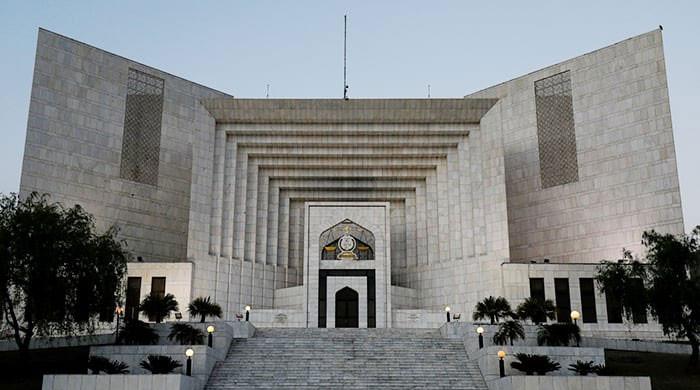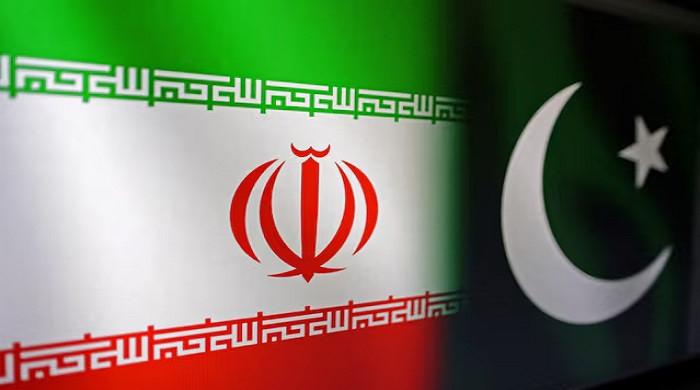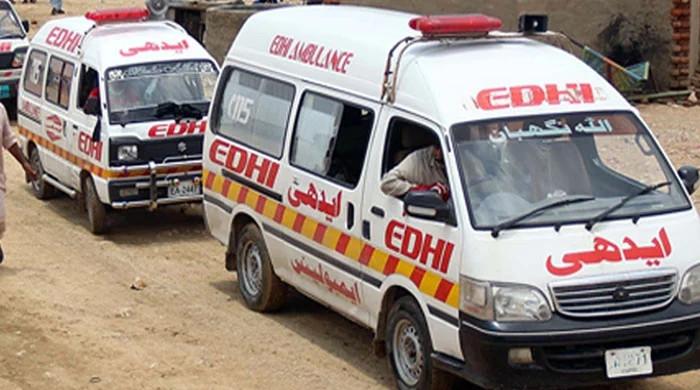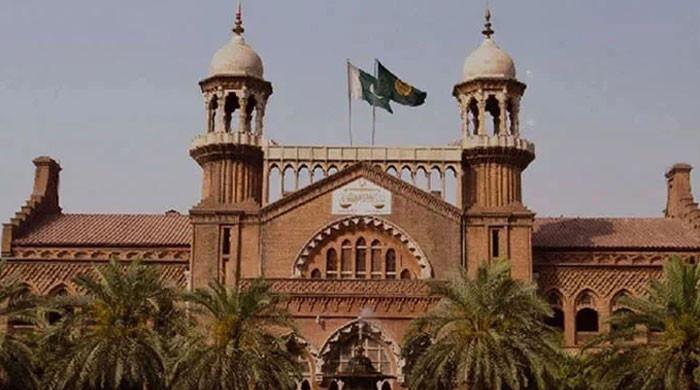Karachi’s public spaces as a no-go area for women
Karachi's women continue to live with a sense of unfamiliarity in the streets of a place they supposedly call home
December 15, 2019
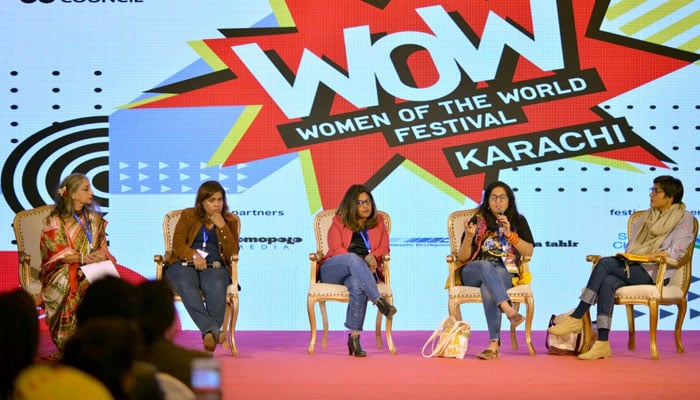
Karachi may be housing people from all backgrounds, echoing with different dialects and welcoming to even the most poverty-stricken segments of society, but its women continue to live with a sense of unfamiliarity in the streets of a place they supposedly call home.
The public spaces in the city remain hostile towards the women residing in the metropolis, even those contributing towards the capitalist wheel that fuels the industrial hub.
Addressing the obstacles that women face today, in ‘reclaiming’ public spaces and making their presence truly felt, Noorulain Masood went into discourse with some distinguished speakers, raising their voices for the empowerment of women. This included, prominent social activist Sheema Kirmani, journalist Atiya Abbas, Executive Director of I Am Karachi, Ambreen Thompson and creative professional Madiha Javed Qureshi.
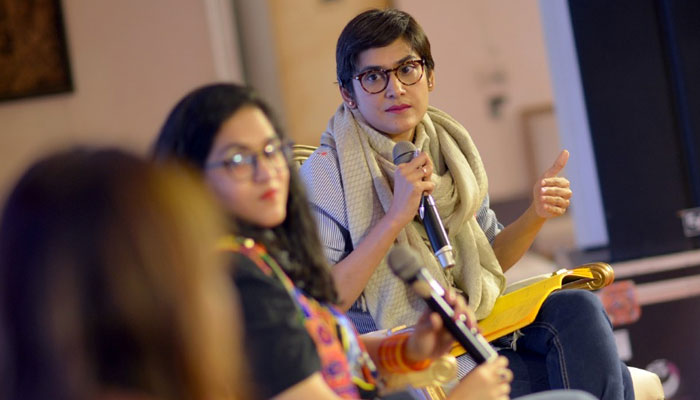
Sharing the obstacles, Abbas began the talk by pointing out the most significant things that restrict women from the outside world: “I feel two things. First thing that people point out is that, women stepping out of the house is not safe which makes safety the foremost obstacle in our way.”
“Why do we talk about safety when we don’t know that a considerable number of incidents of violence take place inside the homes? This narrative of safety is mostly constructed so that women know that ‘your place inside the home and it is men who will go out’,” she adds.
Treading ahead, Abbas stated: “Secondly, purpose. There is always a purpose attached every time we step out of the house. But pleasure is always subtracted from that purpose and when that happens you cannot exercise your agency.”
On the other hand, Qureshi added to the list of obstacles saying: “I would stress on two additional things: Affordability and accessibility. We often lack accessibility; we are always dependent on a male member to take us from one place to another.”
“Accessibility will change more things. Now women are no more dependent on their husbands or their brothers or fathers to move from one place to another. You have to go out and make that effort and use what is available for you,” she said.
“Women will have to be brave because now they are coming into public spaces and they need to inspire other women to join public spaces as well with accessibility and affordability,” she added.
Thompson iterated that the country itself is deprived of public spaces for all citizens regardless of gender: “We don’t have public spaces in its entirety. And those that we do have are not designed for women. Unfortunately this is not the Karachi that was in the sixties. There were spaces, women used to get out. We keep giving up our spaces now. The little space that we have made for ourselves, it takes only one incident for us to step back.”
She further recalled the recent kidnapping of Dua Mangi in Karachi and the questions that were raised pertaining to her clothing while her friend, Haris Soomro, accompanying her, remained away from all kinds of scrutiny: “Was he not wearing a nice t-shirt? Or was it his hair? He was also out at night.”
“One incident happened but ten women stepped back when there should have been ten more women stepping forward,” she added.
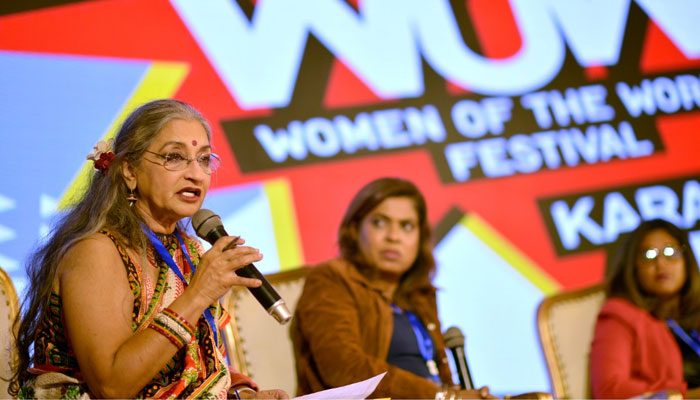
Kirmani, founder of Tehrik-e-Niswan Organization, looked at society and the state’s own negligence that adds to the plight of women in the public spheres: “The structure and the infrastructure of a society is something that we really need to look at. When we look at the hurdles, it is mostly the attitudes and the values. We say that a woman’s job is to stay at home. But the woman’s job never ends. After concluding her household duties, how much time does she get to step out?”
“It is also a question of availability of our time. How much time does she have for recreation? How many women do we know who are able to step out of their houses and have a cup of tea or dinner? In the working classes there is no concept of women stepping out of the house alone,” she further added.







